This post is also available in:  Deutsch (German)
Deutsch (German)
For the first time in my life, I am in a place where there is no land in sight.
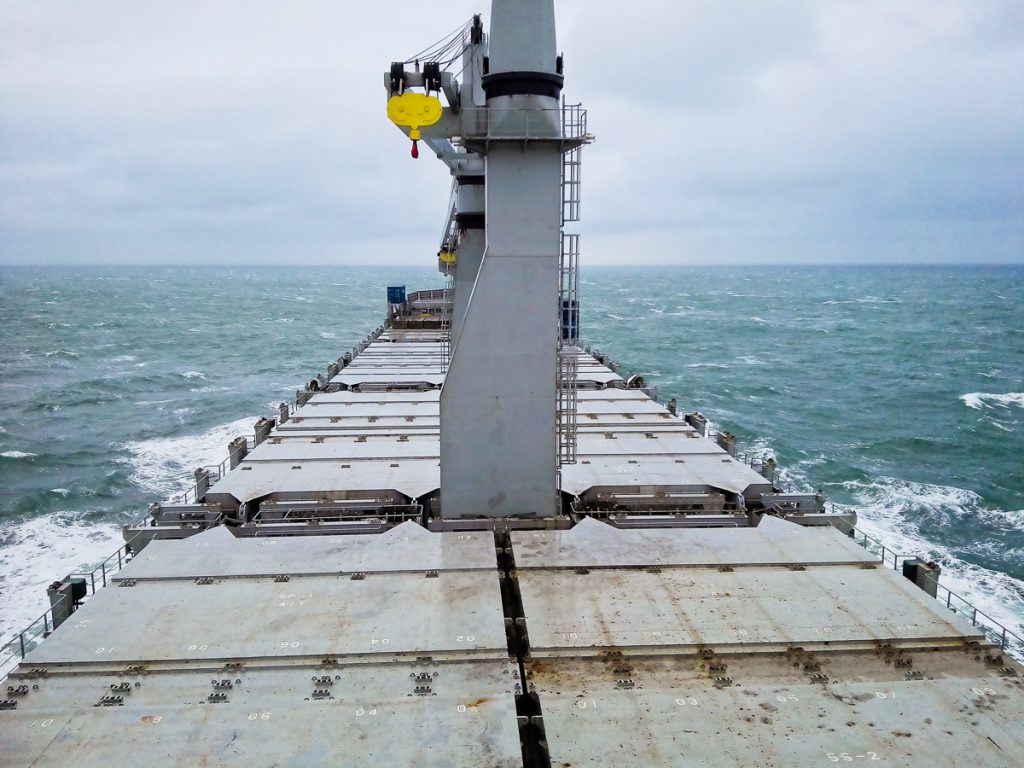
The sea is dark green; the waves have white foam caps. My gaze rises to the straight, dark horizon line around us. Above me are clouds. The clouds are no longer hanging low. Sunlight shines through gaps. In the south rain falls out of a cloud. The wind also has a few drops in it. It is chilly.
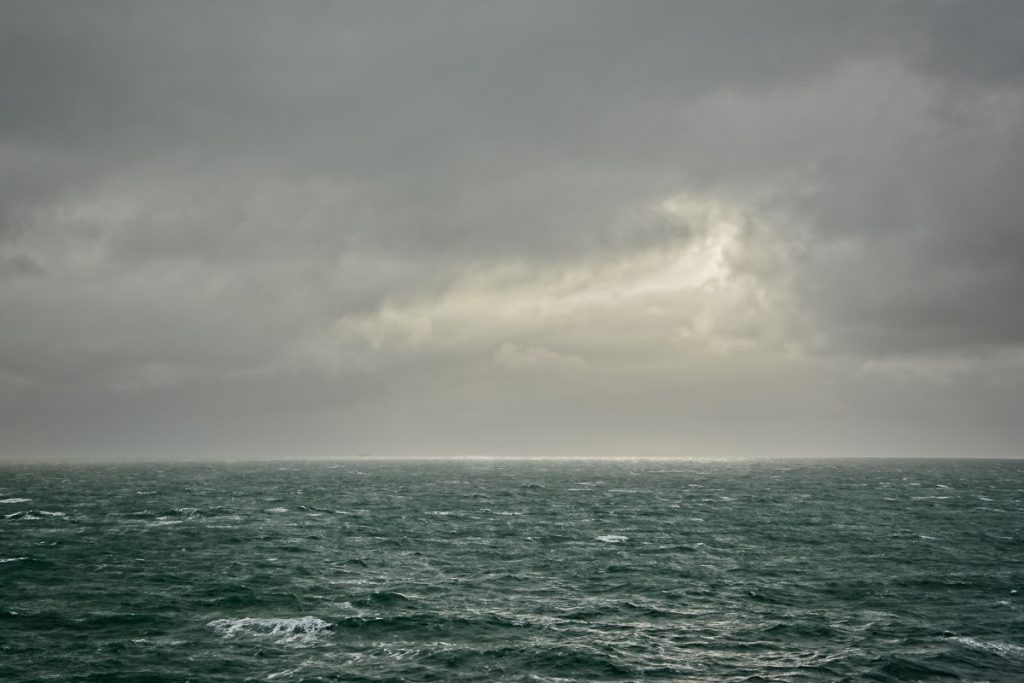
Since clouds limit the view around me, horizon line and waves, I perceive things that are suppressed in the bustle of normal life. The seagulls, for example. They float on the right, diagonally above the ship. They don’t need a wing beat to keep up. It is as if they are attached to the railing with a string like kites.
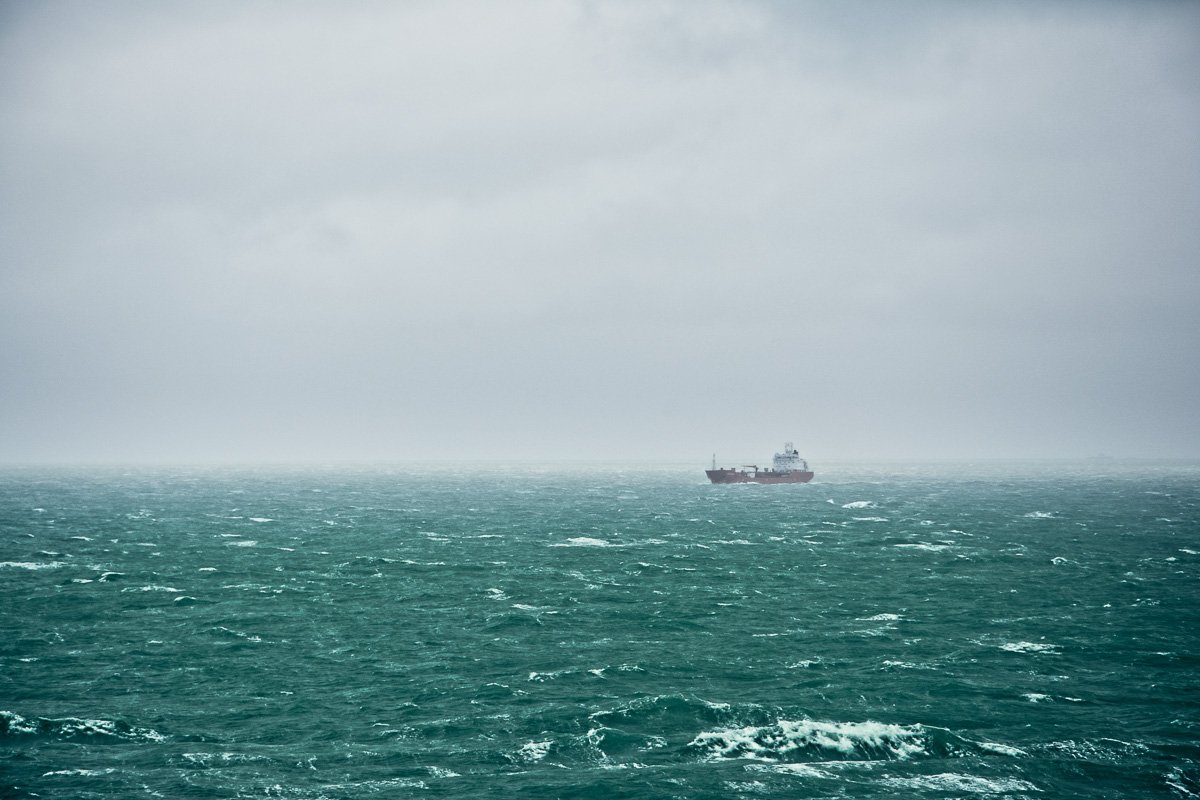
There are a few ships around us going in all directions. One comes quite close in front of us. In the east, an oil platform is burning gas.
It’s quiet. Yes, you can always hear the hum of the engine, but not much else.
At breakfast, the captain says that we don’t advance as fast as he would like. The current and the wind come from the bow. Around 11:00, we will pick up the pilot, and then we go up the Schelde, through a lock, to Antwerp.
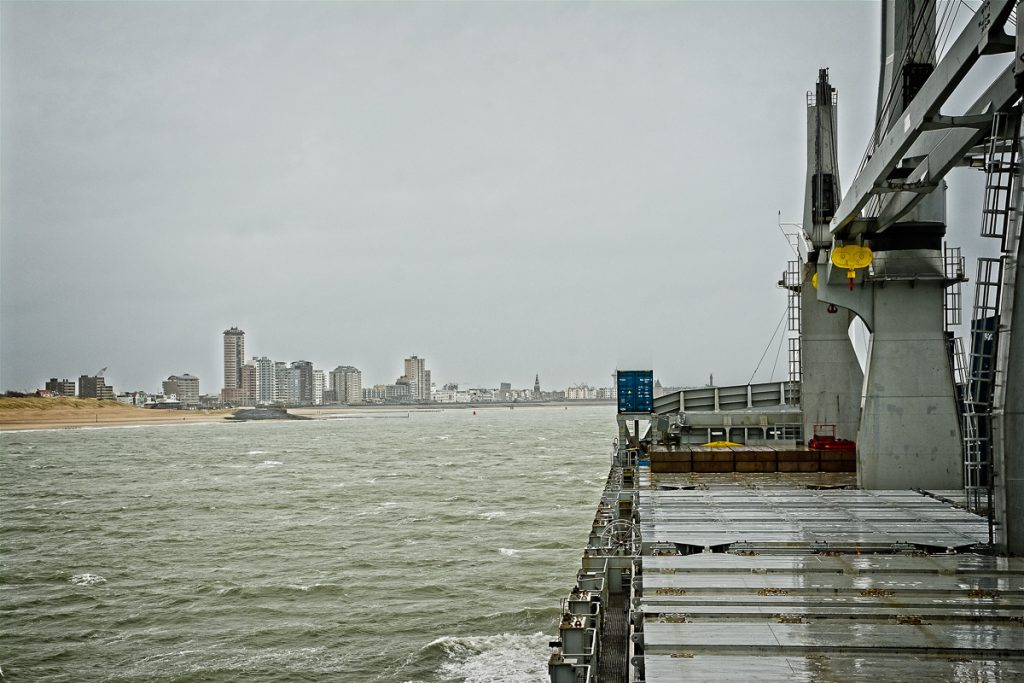
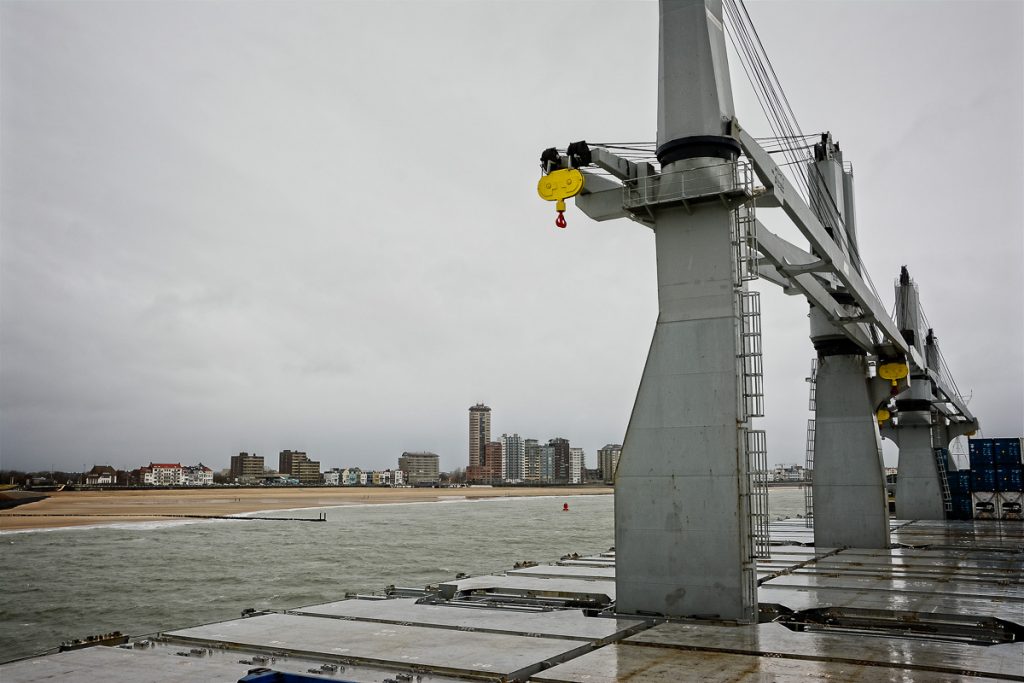
In the forenoon, we reach the Dutch coast and pass it very close. For my taste, it is almost too close, as one can see the people walking on the beach with their dogs. But the Bright Sky remains neatly between the buoys of the waterway and I think to myself: “If we should get stranded somewhere, I can at least swim ashore”.
The captain and his wife become more and more sympathetic to me. At lunch, I ask him about the contract situation of the seamen. They usually get short-term contracts for a trip, in this case around the Cape of Good Hope to Richards Bay and back again. They are always looking for the next contract. During the trip, they are health insured, between the trips they have to make private arrangements. They have to save for their pension themselves. However, sailors also have a few benefits: While they are on the ship, they have free board and lodging. They pay no taxes.
We come from the contracts of sailors to Polish shipping companies and shipyards, which were once the pride of the nation, but after the fall of the Berlin Wall were dismantled and sold away (if not stolen, because whole ships suddenly disappeared), from the Cold War to the Second World War. Then we talk about how all of Poland was moved west by the sick (Roosevelt), the lunatic (Stalin) and the cigar smoker (Churchill) during the conference in Tehran. We go back in history to the Prussians and Napoleon, to the time when Poland stretched from the Baltic Sea to the Black Sea and then again to the Second World War and the small town of Breda in Holland. There Polish men fought as soldiers in the British army. One of them prevented Breda from being destroyed by tanks by talking to the German soldiers.
Yes, that’s what we talk about when we sit at the dinner table. If we want to know what the weather is like, we check an app or look out the window. Here we are talking about really fascinating topics. The conversation is to my taste.
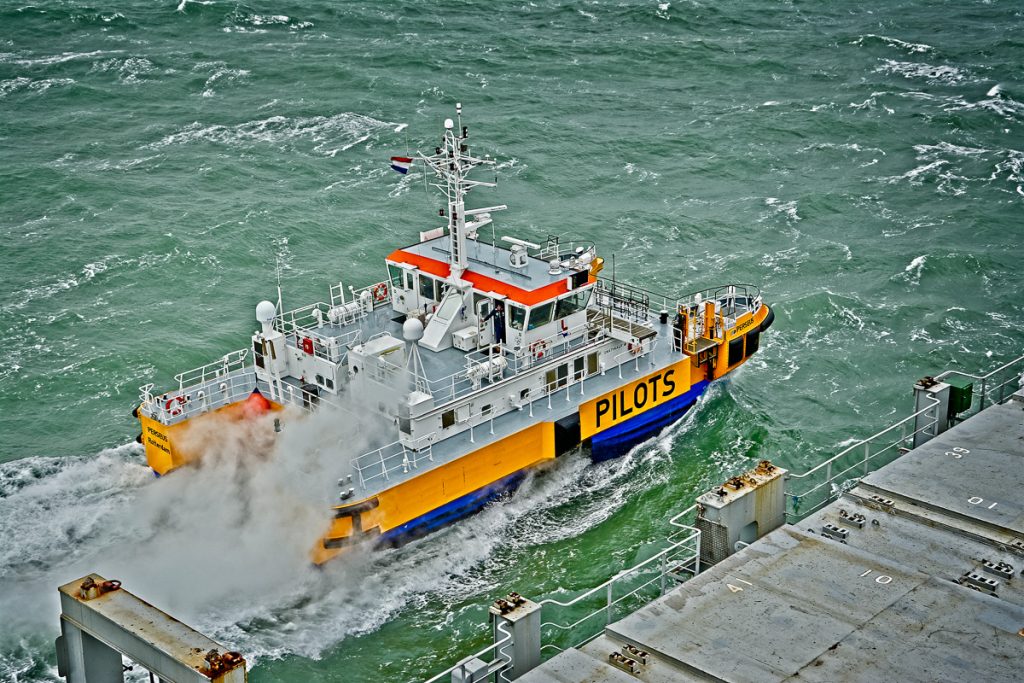
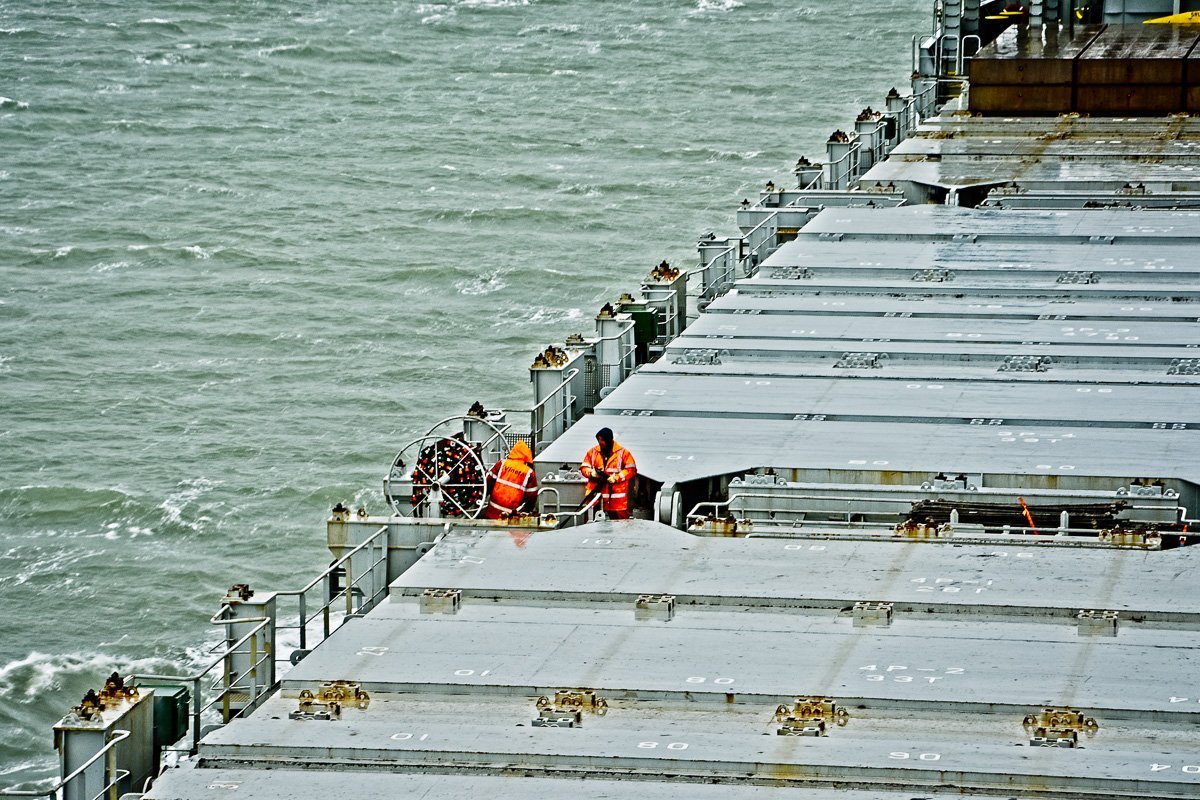
Shortly before lunch, we took a Dutch pilot on board, and he knows what he is doing. Behind Vlissingen, at the mouth of the Schelde, his Belgian colleague takes command. The river quickly becomes narrower and narrower. All the ships to Antwerp follow a gentle course between green and red buoys. It is by no means a straight route along the river. No, we drive wavy lines. Pierre tells me later that he asked the pilot why the waterway on the Schelde was designed that way. The answer was that scientists had discovered that it was more environmentally friendly. When the channel is straightened, the flow of the river is faster. Building the waterway in this way is an attempt to combine shipping, which is very important for the area, with environmental awareness.
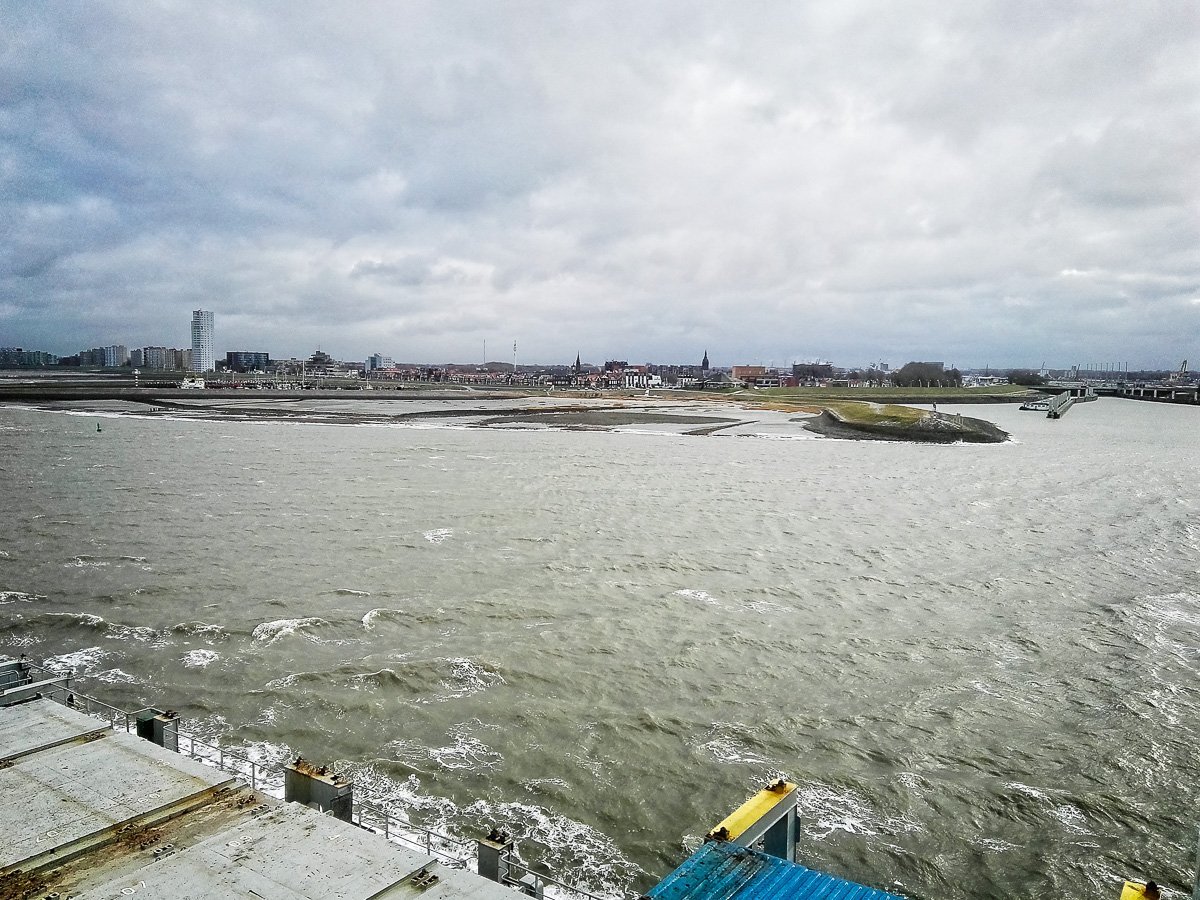
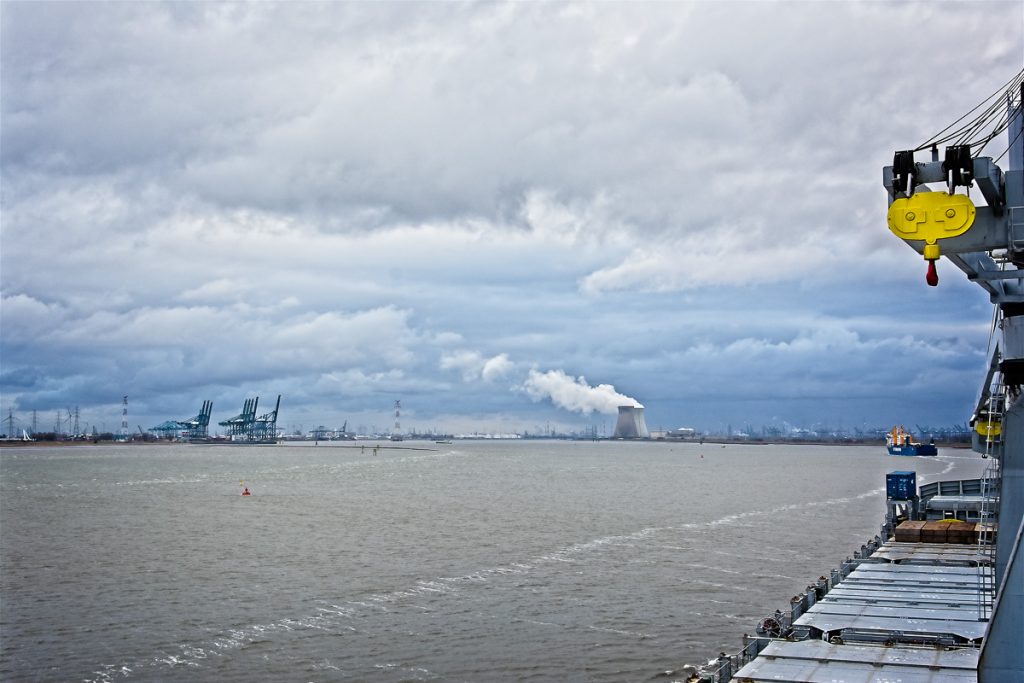
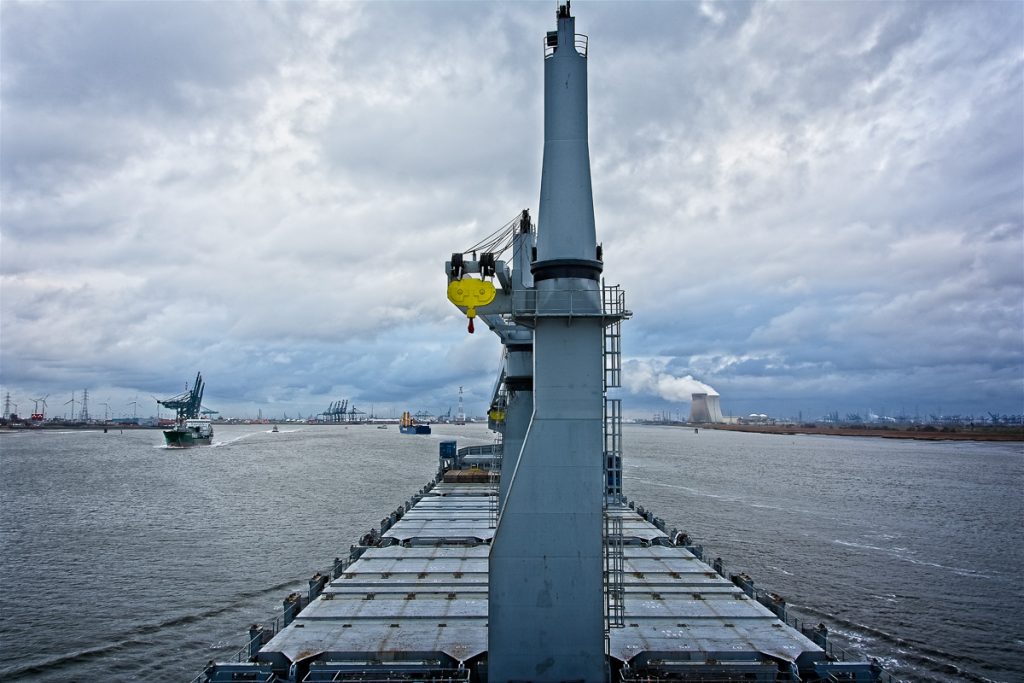
Speaking of the environment: At Zandvliet, we pass a nuclear power plant, of which I am suspicious. The Belgian nuclear power plants are notorious for their deterioration. If they ever exploded like Chernobyl or Fukushima, not only would the Belgians have the problem that they could no longer illuminate their motorways with street lamps, but the whole of North Rhine-Westphalia would also suffer. But as we sail past, nothing exciting happens.
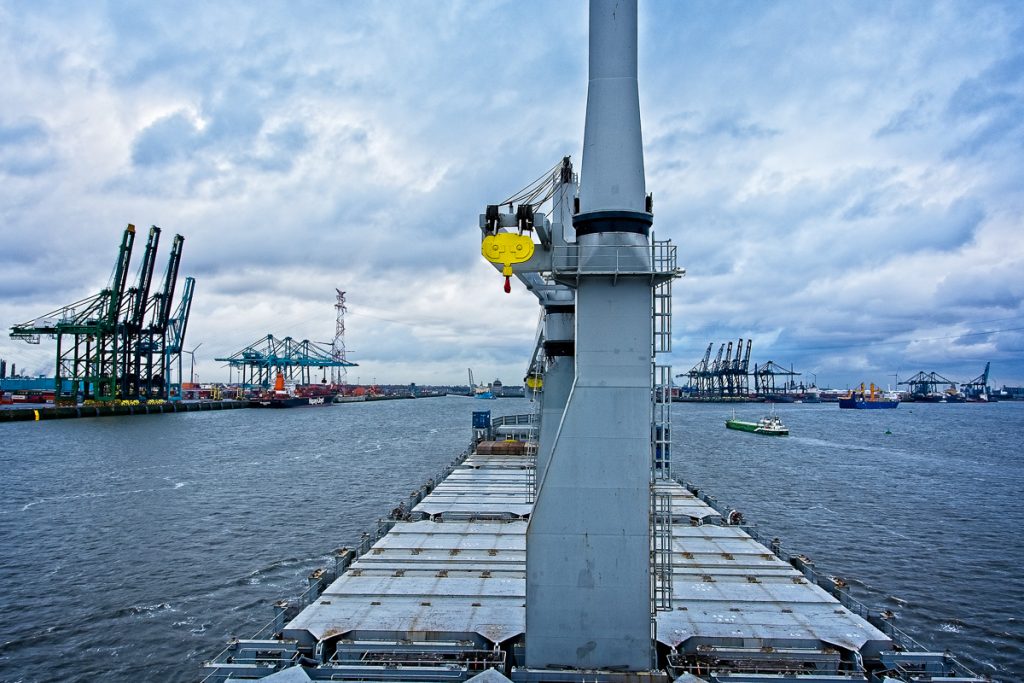
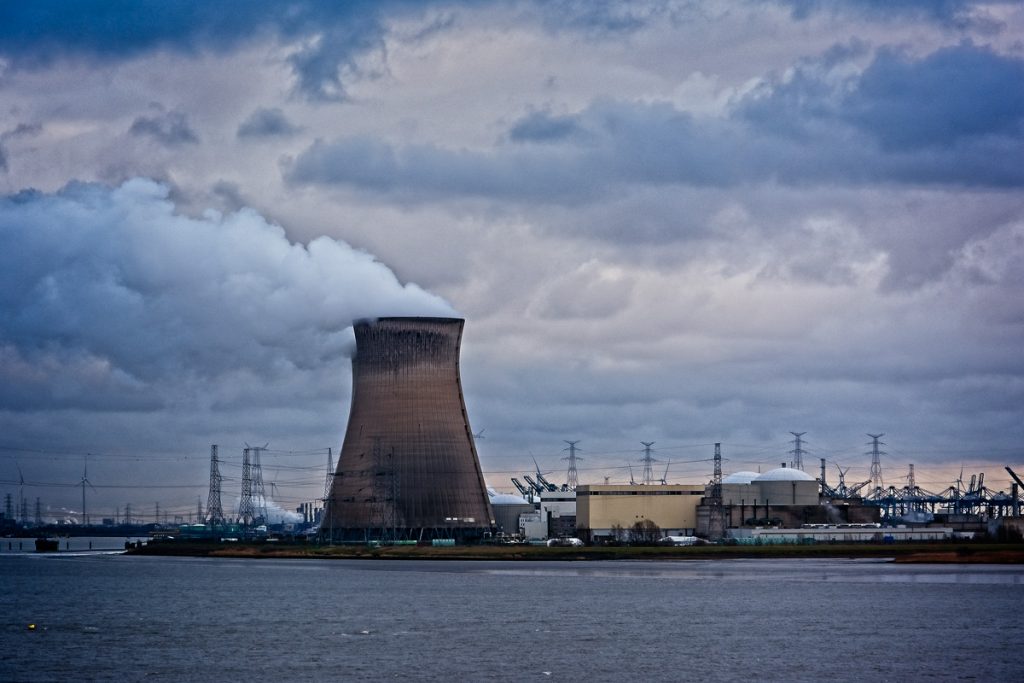
Then we come to the lock – the Berendrechtsluis. The Bright Sky here has to be lifted a few meters. It is not the first time that I am in a lock, but the first time on a 200 m long and 35 m wide ship.
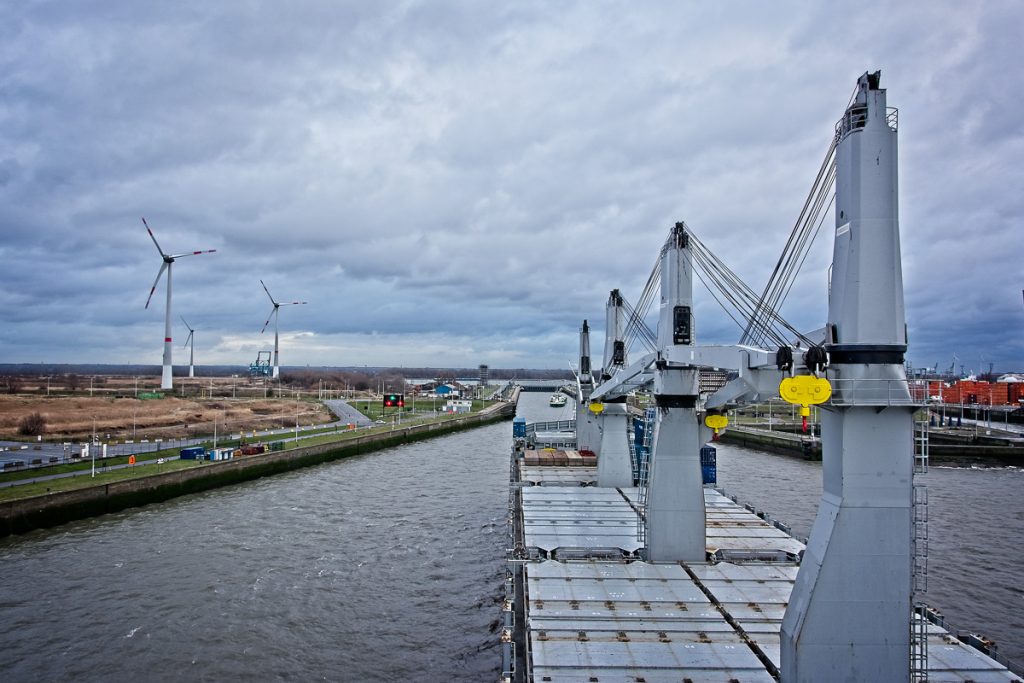
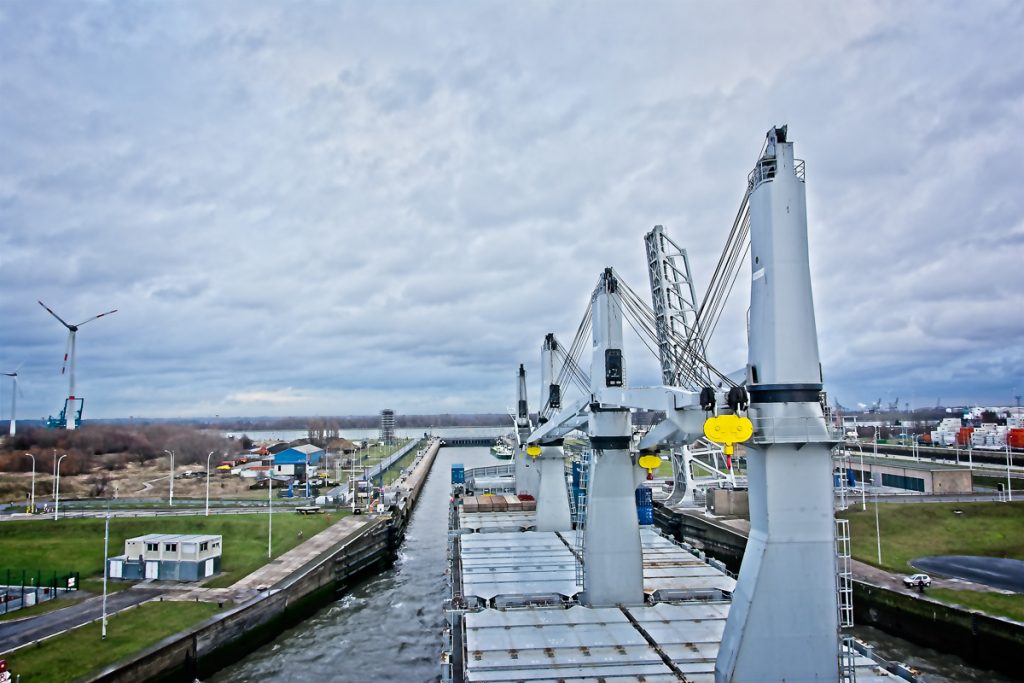
At walking speed, we enter the lock. Another smaller ship is already inside, but we still fit behind it. There is even another barge passing us and heading forward to the first one. Linesmen moor us on land.
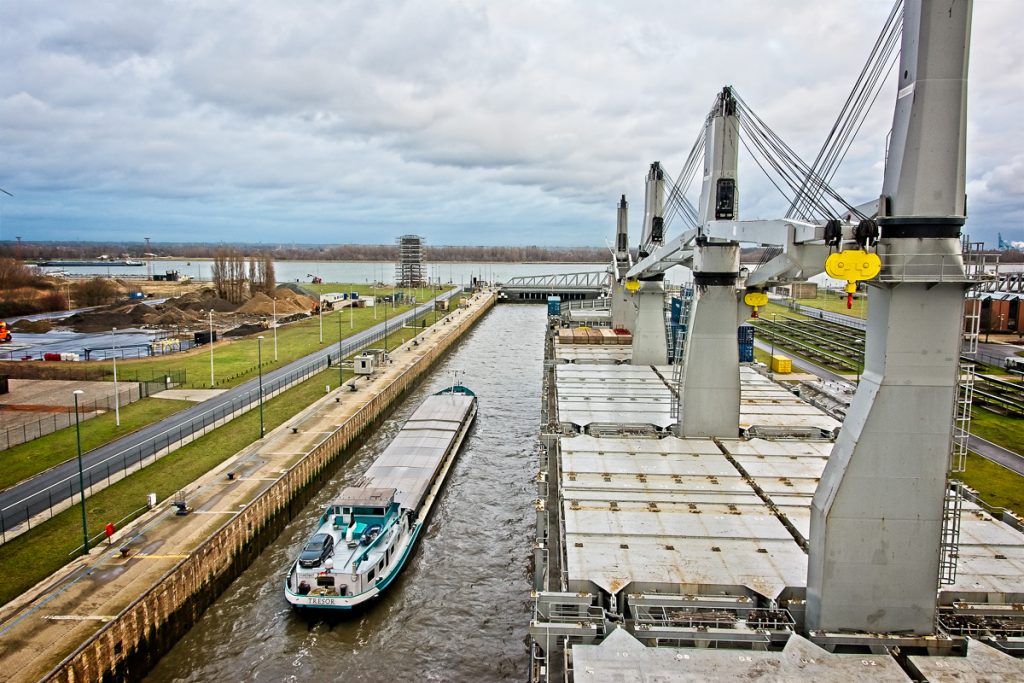
Then the lock closes behind us and water is pumped into the basin until it is at the same level as the canal on the Antwerp side of the lock.
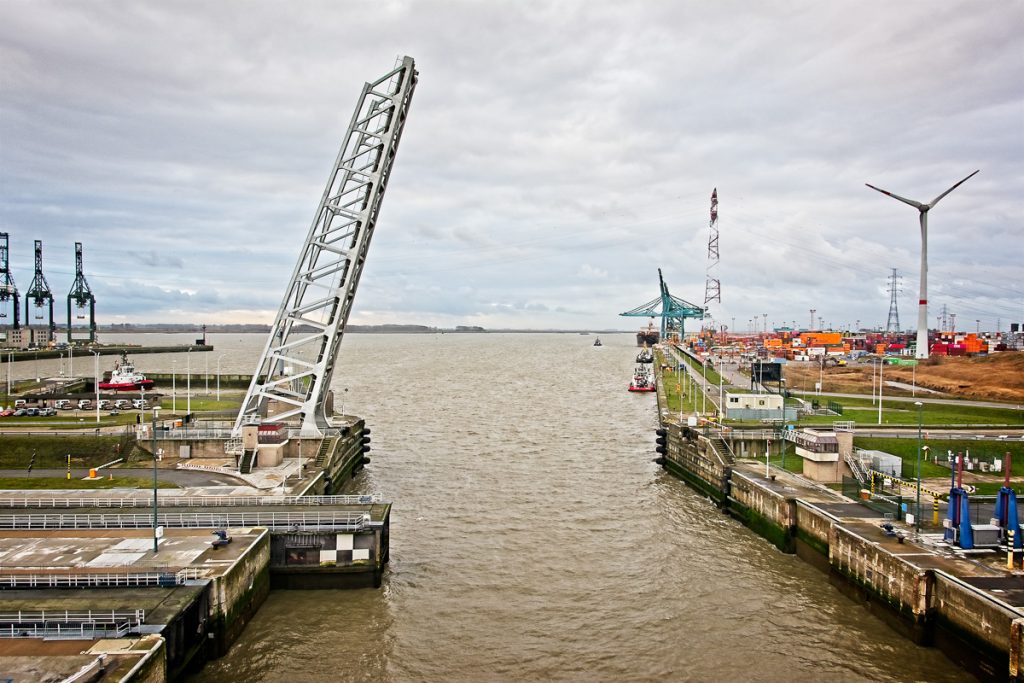
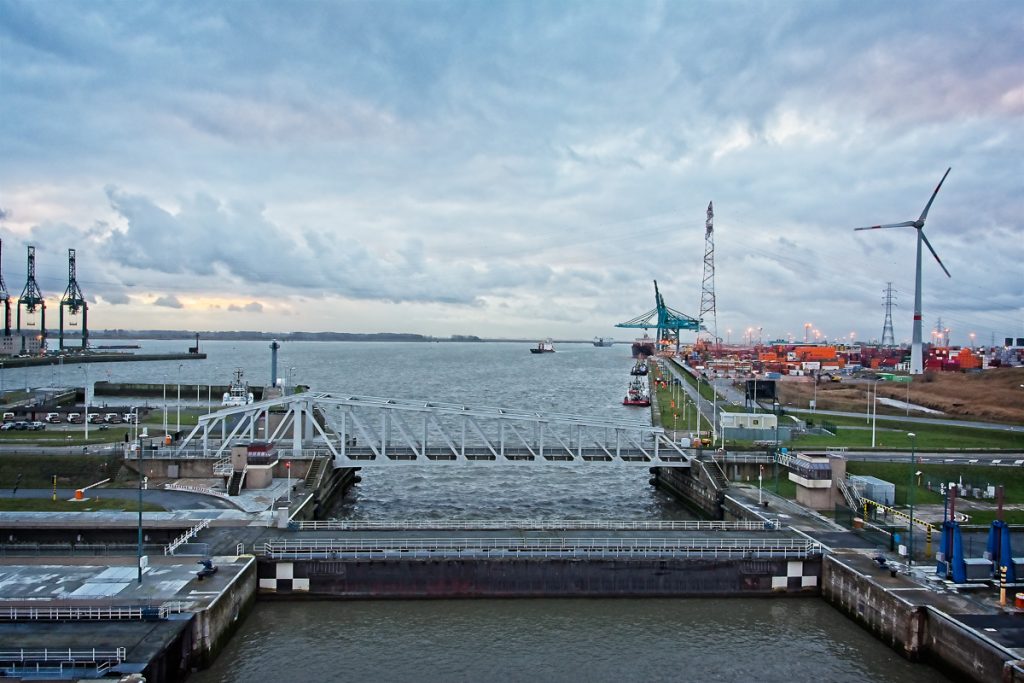
After only 10 or 15 minutes, there is enough water in the lock to open the front gate. The two smaller ships are already allowed to go. We still have to wait. Finally, the traffic light turns green for us as well. We cast off. I stand on the balcony of the bridge to follow the whole proceedings.
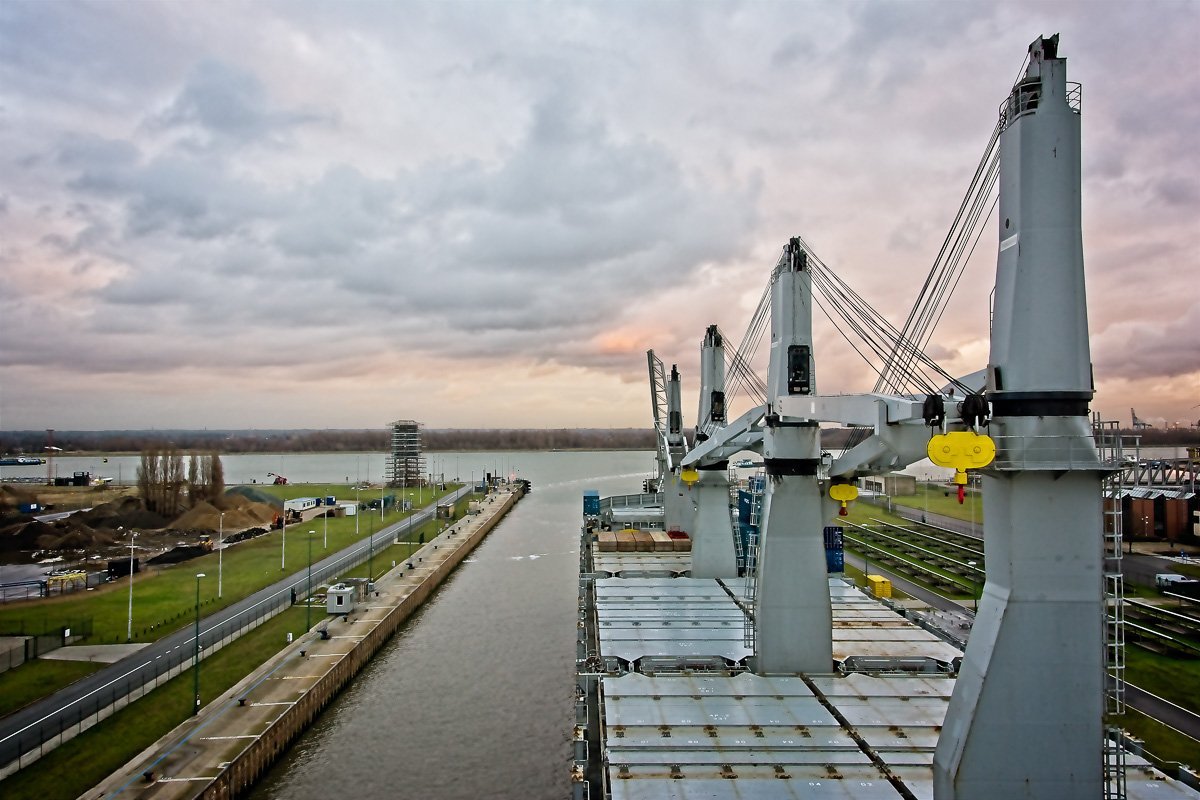
The pilot stands at the railing, looks at the distance between the ship and the quay wall and gives short commands like “Starboard. More Starboard”. The Chief Officer is standing at a console on the balcony, repeating the pilot’s command, “Starboard” and operates a joystick. We move centimetres away from the quay wall of the lock. When we are back in the middle of the basin, we are allowed to slowly drive forward until the stern of the Bright Sky exits the lock.
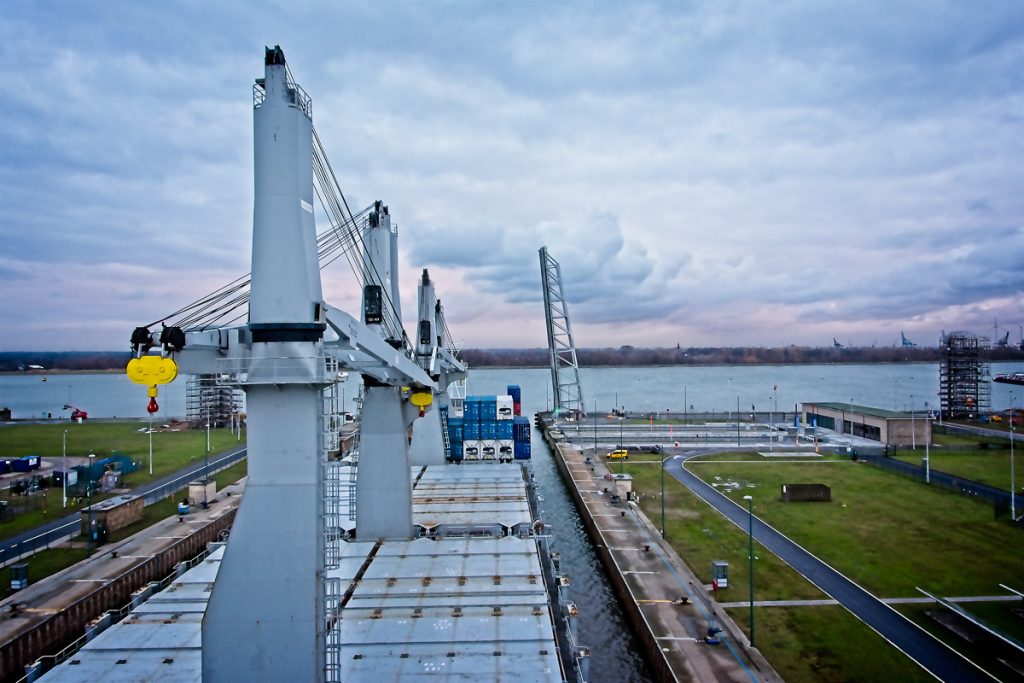
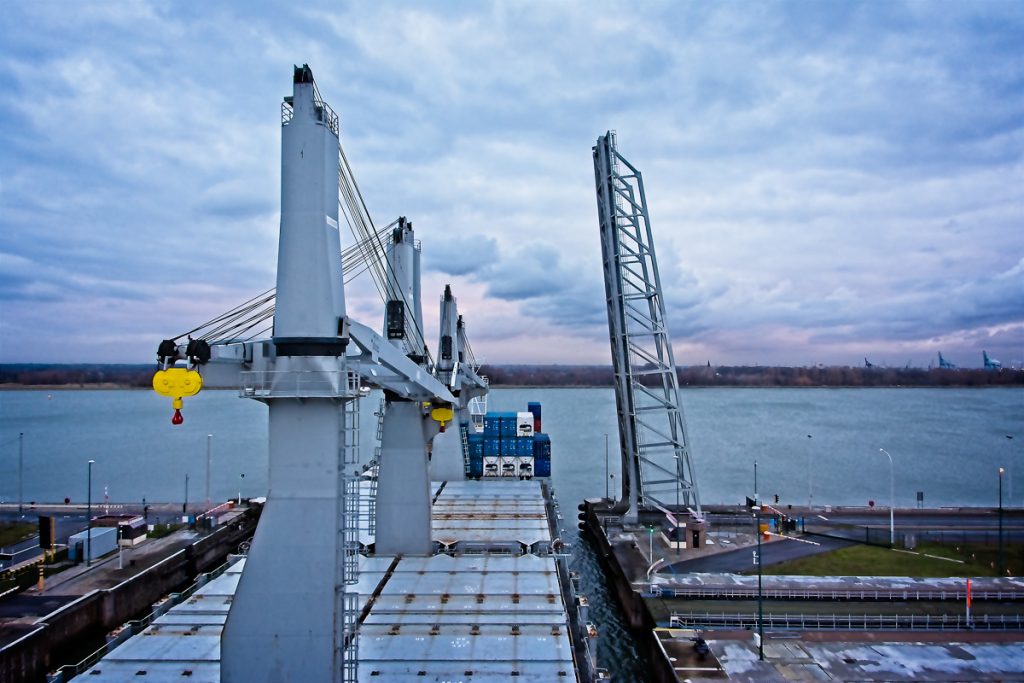
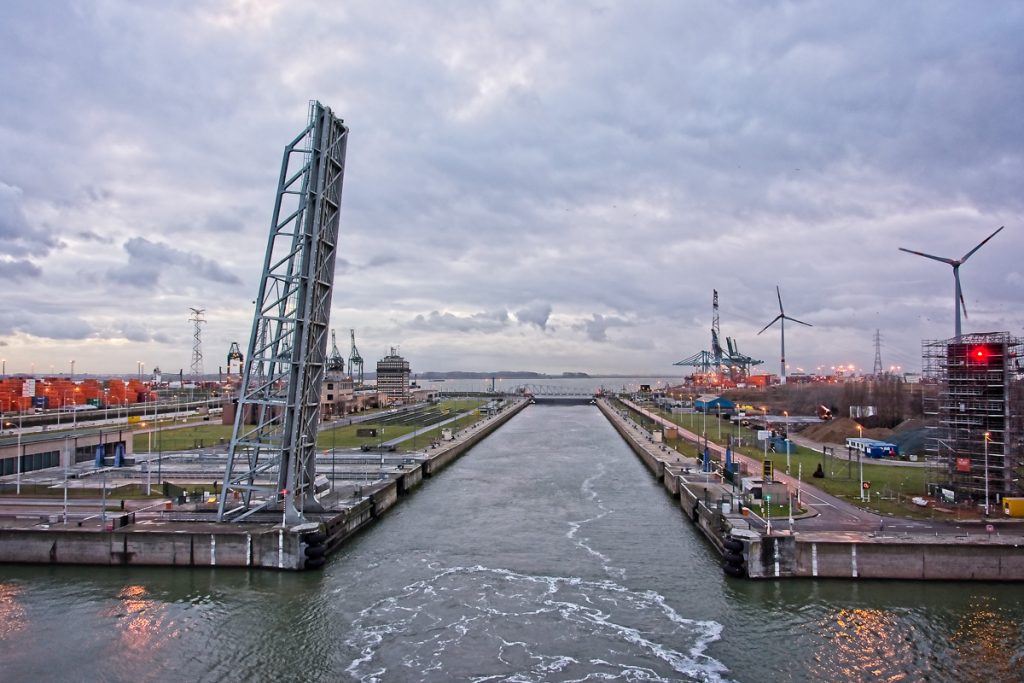
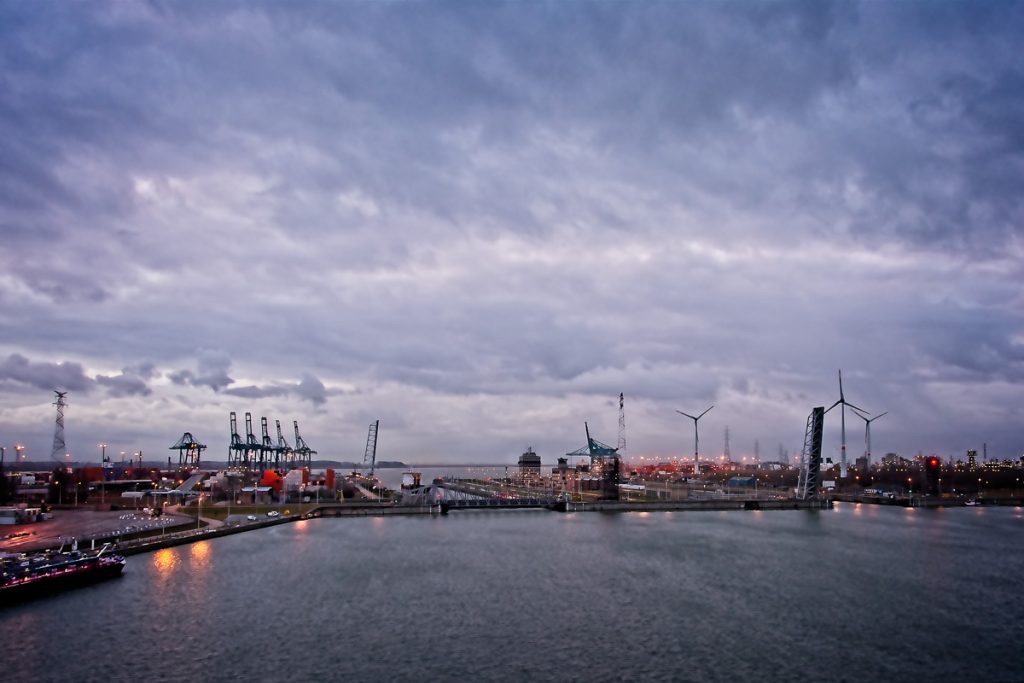
We now proceed in the direction of Antwerp and reach the Churchilldok at 18:30.
It is Sunday and already evening, but the unloading and loading of the Bright Sky starts immediately. The hatches are opened, the ship cranes are aligned so that they point away from the dock, barges moor on the waterside and cranes on the quay go into action. It rumbles and rumbles. The whole ship swings back and forth.
Would you like to see an overview of all articles about my journey on the cargo ship Bright Sky? Click here for a table of contents.
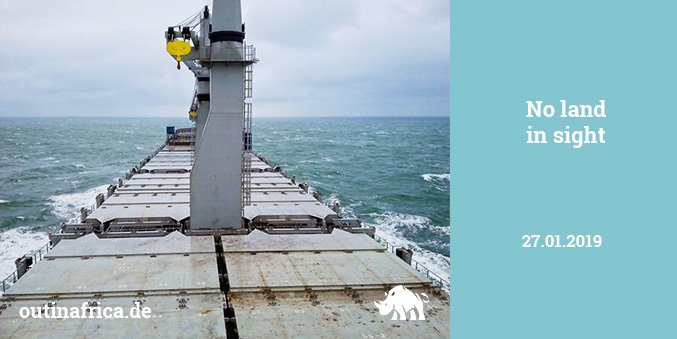
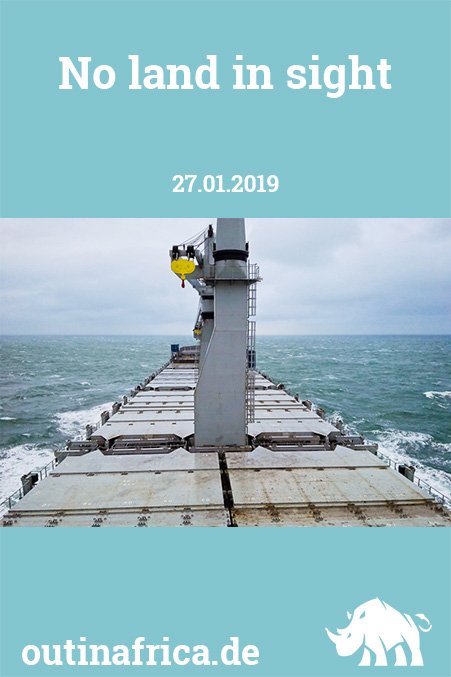

Leave a Reply